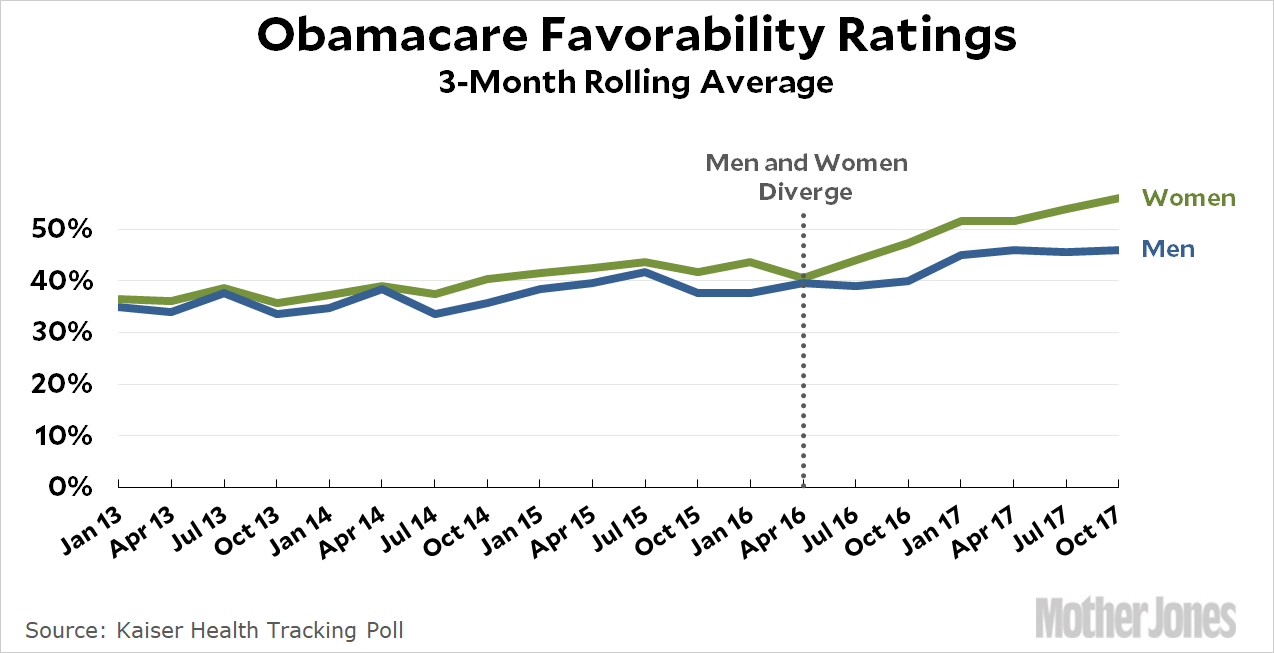The LA Times today says that Obamacare has finally become a political winner for Democrats:
In Maine, voters resoundingly backed a ballot measure to expand Medicaid through the federal healthcare law….And worries about healthcare in Virginia helped fuel a solid victory for Democratic gubernatorial candidate Ralph Northam and Democratic legislative candidates across the state.
That evidence seemed a little thin, so I headed over to the Kaiser website to see how Obamacare has been doing in their tracking poll. I haven’t checked in on that for a while. Here are the latest favorability ratings:

Obamacare favorability rose steadily but modestly through the first half of 2016, and there was only a slight difference between men and women. Then, in mid-2016 its favorables accelerated—but only among women. Favorability among men continued to rise at about 2 percent per year, but among women it began rising at the astonishing rate of about 10 points per year. In the most recent survey, favorability among women outpaced men 56-46.
Around the same time there’s also some acceleration in favorability among independents and the young, though it’s not as dramatic as the acceleration among women. I’m not sure what caused this. The obvious explanation is that it had something to do with Hillary Clinton winning the Democratic nomination, though if that’s the case it’s odd that the faster pace has continued long after the election was over.
Alternatively, maybe it’s a sign that women are just less politically stubborn than men. After seeing what Obamacare could do, and noticing that the sky hadn’t fallen, perhaps women began changing their minds and feeling more warmly toward it. After all, what’s wrong with decent health care at a decent price for everyone, especially if it hasn’t turned America into a socialist hellhole where we all have to wait months to see our government doctor? Conversely, perhaps men are more likely to stick to their guns regardless of the evidence.
Any other guesses?

















